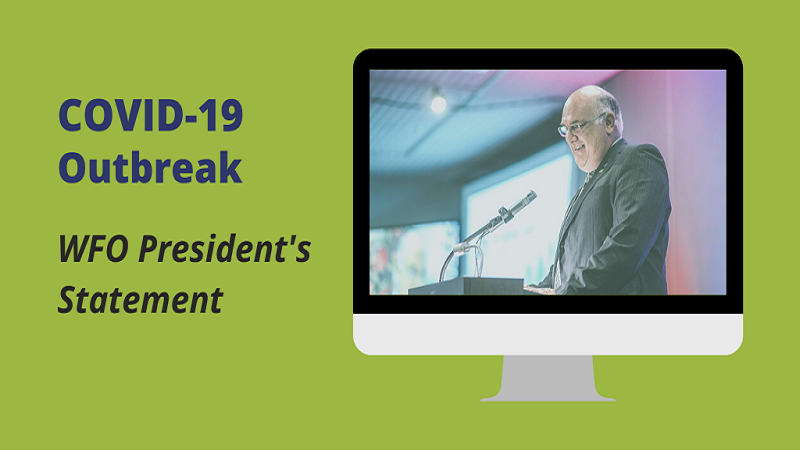While the world came to a standstill, holding its breath for the Covid19 pandemic to pass, the implications of the measures taken by governments around the globe to limit infections, will have a much wider and longer effect on families, communities and society as a whole.
Lockdowns, and restrictions on movement, economic activities and trade have already caused major disruptions to businesses, jobs and livelihoods, leaving millions of people in despair. Households run out of cash, out of food and out of hope.In WFO we believe that today’s challenge is to launch a global campaign to ensure that no family goes hungry, not during the battle against the Coronavirus, nor thereafter.
Such a campaign has to be focused on the two ends of the food system: the consumers and the producers. In both those categories, we need to address the needs of the smallest, weakest and most vulnerable first.We call for governments and civil society to join forces and resources to get food into the poorest communities and in the most vulnerable countries before hunger gets the better of them and hijack the agendas. For the food to be available, we call on governments to ensure that farmers have the means, inputs and a well-functioning sustainable value chain for us to keep feeding the world like we have always done before.
Hungry families in poor communities are a bigger risk than Covid19. Nothing will stop them when they will take to the streets. We have only one chance to prevent this: we must stop it before it happens. Food must be taken where it is needed. For that, farmers need to be empowered to produce it. Those who think it will cost too much should consider the cost of not doing so!
The virus has truly hit the world’s reset button, and will undoubtedly change many paradigms and systems we deemed unchangeable. Yet, as farmers of the world, we see an opportunity to change the food systems to be fairer and more equitable and to create a world without hunger.
